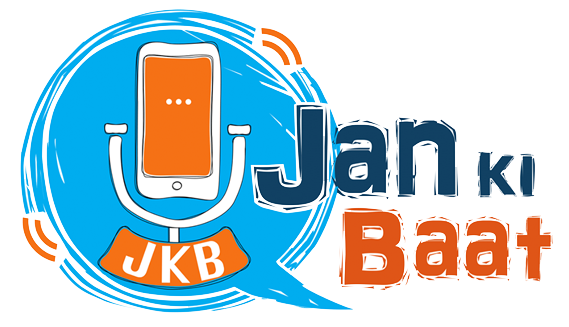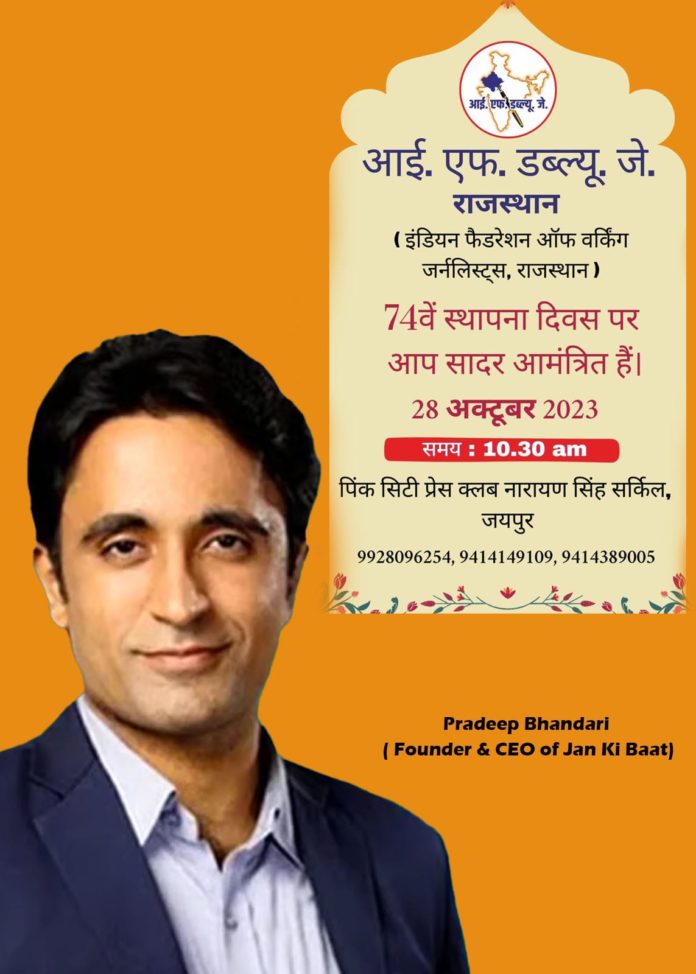In a significant gathering on October 28, 2023, Pradeep Bhandari, an eminent figure in the realm of Indian journalism, had the privilege of addressing the Indian Federation of Working Journalists (IFWG) in Jaipur, Rajasthan. The IFWG, one of India’s oldest and largest bodies of journalists, holds a legacy of service to society and the nation that spans over seven decades. Established on this very date in 1950, it boasts a membership of over 30,000 journalists who have tirelessly served as the vanguards of information, truth, and accountability.
Often referred to as the “fourth pillar of democracy,” the media’s role in the democratic fabric of India is undeniable. However, Bhandari’s thought-provoking address at the IFWG event called for a paradigm shift. He emphasized the need for media to transform itself from being the fourth pillar to assuming the pivotal role of the “first pillar” of democracy in India.
For more than 70 years, journalists associated with IFWG have been at the forefront of reporting, investigating, and shedding light on the most critical issues that affect the lives of the people and the progress of the nation. They have played an essential role in shaping public opinion, holding the government and other institutions accountable, and upholding the principles of democracy.
The call to become the “first pillar” of democracy is not merely a semantic shift but a profound transformation in the way media perceives and conducts itself. Bhandari’s vision challenges the media to proactively take up the mantle of leadership in driving social and political change. This transformation requires the media to not only report news but also actively engage in promoting transparency, fostering inclusivity, and advocating for the rights of citizens.
In the digital age, where information flows at an unprecedented pace, the responsibility of the media becomes even more significant. The media must not only inform but also educate, guide, and empower the citizens of India to make informed decisions about their governance. To achieve this, media organizations should prioritize integrity, accuracy, and ethical reporting.
Pradeep Bhandari’s address serves as a reminder of the immense power and responsibility that journalism holds in a democratic society. To become the “first pillar” of democracy, Indian media must act as a beacon of hope, championing the values of truth, justice, and accountability. It is through this transformation that media can contribute significantly to India’s journey towards becoming a developed nation, where democracy thrives, and the people’s voices are heard and respected.
The IFWG, with its rich history and extensive network of dedicated journalists, is well-poised to be at the forefront of this transformation. As the legacy of this esteemed institution continues, one can only hope that Indian media, as a whole, will take Pradeep Bhandari’s message to heart and rise to the occasion, becoming not just the “fourth pillar” but the steadfast “first pillar” of democracy.

